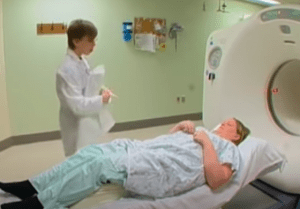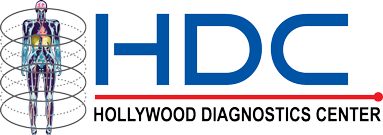
The good news is that whatever you are expecting, no matter how nervous you might be, Hollywood Diagnosticss Center is here to take care of your imaging needs and do so with care.
Imaging scans are like a window inside your body. They’re an important tool in helping your doctor diagnose cancer, see how far it has spread, decide on treatment possibilities, and find out if the cancer has come back after treatment. Imaging plays a very important role in the management of patients with lymphoma, and the most advanced technology being used for the past 10-plus years is PET/CT scans.
If your doctor tells you that you need one of these tests, here’s what you need to know, where to go (Hollywood Diagnosticss Center), and what you can expect.
What is a PET/CT Scan
PET stands for “positron emission tomography.” It’s a type of nuclear imaging scan that uses small amounts of radioactive material called a “radiotracer” and a computer to look for cancer inside the body. One commonly used radiotracer is F-18 fluorodeoxyglucose which is similar to glucose (sugar). The tracer collects in the cancer, to help it show up on computer screens.
Because a PET scan can identify changes in your body at the molecular level, it can find cancer that’s not visible on other types of imaging tests. That gives PET scans advantages over traditional anatomic imaging like CT scans, x-rays, or ultrasounds.
CT is short for “computed tomography.” It takes a series of x-rays from different angles and combines them using a computer into three-dimensional cross-sectional images of your bones and other tissues inside your body.
A PET/CT scan combines both of these tests into one machine to streamline the process.
What to Expect During the Test
Your doctor will probably tell you to fast hours before the scan. Eating affects the distribution of the PET tracer and it could compromise the quality of the scan. Also, avoid sugary drinks. Water is ok. If you have diabetes, ask your doctor for special instructions about what you can eat and drink. Metal objects, such as jewelry, eyeglasses, and hearing aids could interfere with the scan. You will be asked to remove them before the test.
A technician will first give you an injection of the radioactive tracer. It takes about 60 minutes for the tracer to travel throughout your body and collect in the cancer cells. You will then be ready to start the scan.
You lie on a table, which slides into a donut-shaped hole in the center of a large machine. The technologist sits in a separate room. And will be able to hear and talk to you throughout the procedure.
The scan doesn’t cause any pain, with the exception of the prick needed to inject the radiotracer. If you’re claustrophobic, you might feel a little uncomfortable in the tube. Ask your doctor ahead of time if there’s anything you can do to relax during the test. You’ll need to stay still during the 30-minute test to get a clear image.
What the Scan Will Show
The advantage to a PET/CT scan is that your doctor will not only be able to see your organs and tissues but also areas of cancer. Cancer cells are more metabolically active – hungrier than healthy cells — so they gobble up glucose and light up on the scan.
A radiologist or other nuclear medicine specialist will read your scan and send a report to your doctor. Once the results are in, ask your doctor what they mean, how your treatment might change, and what outlook you can expect.
If you are looking to book a CT or PET Scan at the best center in Hollywood, Florida then you have come to the right place! To book your scan today please contact our medical team here or call us at: (954) 966-3600. At Hollywood Diagnosticss Center we look forward to the opportunity to serve you in all your future medical imaging needs. Including Open MRI, High-field MRI, PET Scan, CT Scan, Mammography, Ultrasound, Echocardiogram, X-ray, EKG, Bone Density Scans and more!
